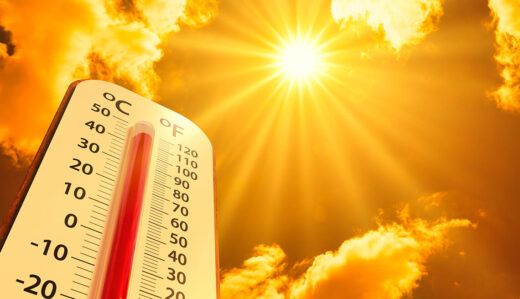Summer may be the season of vitality, energy, and movement but when it comes to male fertility, heat isn’t always your friend. While most people associate sperm health with hormones and genetics, few realize how temperature-sensitive sperm production really is.
From tight underwear to laptop usage and seasonal climate changes, several lifestyle factors influence the delicate environment needed for healthy sperm. In this comprehensive guide, we’ll explore how heat affects sperm quality, what habits can disrupt testicular temperature regulation, and how men can protect their fertility especially during the hotter months.

How Does Temperature Affect Sperm Production?
Sperm production, or spermatogenesis, occurs in the testicles and requires a very specific temperature range to function optimally. Ideally, the testes remain at about 2 to 4°C (3.5 to 7°F) lower than core body temperature. This is why the scrotum hangs outside the body to provide natural cooling.
When the testicles become overheated whether from external temperatures, clothing, or posture it can:
- Disrupt sperm formation
- Reduce sperm count and motility
- Increase the number of abnormal sperm forms
- Trigger DNA damage in sperm cells
Studies have shown that even temporary elevations in testicular temperature can negatively affect sperm quality. For instance, a 2018 review in Reproductive Biology and Endocrinology found that prolonged heat exposure may lower sperm concentration and reduce overall fertility potential in men.
Does Hot Weather Decrease Sperm Quality?
Yes, seasonal heat can have a measurable impact on sperm quality. Multiple studies have shown that sperm parameters tend to be lower in summer months, particularly in regions with extreme heat and humidity.
Common Effects of Hot Weather on Sperm:
- Lower sperm count
- Decreased motility (ability to swim effectively)
- Higher incidence of morphological defects
- Oxidative stress leading to DNA fragmentation
Men who are already dealing with suboptimal fertility or borderline test results may find that summer heat further impairs their sperm health especially if compounded by other lifestyle factors like dehydration, poor nutrition, or exposure to chemicals.
Can Tight Underwear Affect Sperm Quality?
Yes. Wearing tight underwear especially synthetic or non-breathable fabrics can trap heat around the groin, raising scrotal temperature and interfering with sperm production.
In a widely cited Harvard study, men who wore loose boxers had higher sperm concentrations and lower DNA damage than those who wore briefs.
Recommendations:
- Opt for loose-fitting cotton boxers instead of tight briefs.
- Avoid compression shorts or synthetic athletic wear unless necessary, and limit duration.
- Sleep without underwear if possible to promote overnight cooling.
Underwear choice alone won’t make or break fertility, but when combined with other heat-related factors, it plays a measurable role.
Does Laptop Use Raise Testicular Temperature?
Absolutely. Placing a laptop directly on the lap can increase scrotal temperature by 2–3°C within 15–30 minutes. This elevation, sustained over time, is enough to negatively affect sperm production.
Additional Risk Factors:
- Sitting with thighs close together, restricting airflow
- Wearing tight pants while using a laptop
- Using heated pads or devices directly on the body
How to Minimize Laptop-Related Heat Exposure:
- Use a desk or cooling pad instead of placing the laptop directly on your lap
- Avoid using laptops in cross-legged or closed-thigh positions
- Take breaks and change posture frequently during long usage sessions
While a single session may not cause lasting damage, daily heat exposure adds up, especially in combination with other lifestyle habits.
Do Cold Showers Improve or Harm Sperm?
Unlike heat, cool environments are protective for sperm within reason. Cold showers, or even brief exposure to cool water, do not harm sperm. In fact, they may help regulate testicular temperature during periods of excessive heat.
However, extremely cold temperatures (such as ice baths or extended cold exposure) may cause vascular constriction, which isn’t ideal for testicular blood flow if sustained for long durations.
Potential Benefits of Cold Showers for Sperm Health:
- Reduce scrotal temperature in hot weather
- Lower oxidative stress and inflammation
- Boost testosterone circulation (according to anecdotal reports)
So, while a cold shower won’t magically improve sperm count, it can be a simple, supportive habit for reproductive health especially during summer.
Can You Do a Sperm Test in Summer?
Yes, sperm analysis (seminogram) can be conducted any time of the year including during summer. However, interpretation of results should take seasonal variation into account, especially if borderline values are detected.
If you’re planning to have a sperm test in the summer, consider:
- Avoiding hot tubs, saunas, and intense sun exposure for at least two weeks beforehand
- Wearing loose, breathable clothing
- Staying hydrated and avoiding alcohol and tobacco
- Limiting laptop or phone use near the groin
If the results are lower than expected, your doctor may recommend a follow-up test in cooler months to compare seasonal effects.
Sperm regeneration takes approximately 64–72 days, so what you do now affects your fertility two to three months from today.
Tips to Protect Sperm Quality in Hot Weather
Whether you’re planning to start a family or simply want to preserve your fertility, here are science-backed strategies for sperm protection during summer:
✅ Stay Cool
- Avoid direct sun exposure for extended periods.
- Use cool packs on thighs (never directly on testicles).
- Sleep in lightweight, breathable fabrics.
✅ Hydrate Well
- Drink 2.5–3 liters of water per day to support optimal seminal fluid production and blood flow.
✅ Exercise Smart
- Avoid overtraining in hot conditions. Excessive heat and inflammation can spike oxidative stress, harming sperm DNA.
✅ Minimize Heat Sources
- Skip saunas, hot baths, and heated car seats.
- Keep electronic devices away from the lap area.
✅ Nutrient Support
Include fertility-supporting nutrients in your diet:
- Zinc, selenium, vitamin C, vitamin E, L-carnitine, and omega-3 fatty acids.
When to See a Fertility Specialist
If you’ve been trying to conceive for more than 6–12 months without success or if you’ve experienced:
- Prior fertility issues
- Varicocele or testicular trauma
- Chronic exposure to heat (e.g., chefs, drivers, athletes)
- Poor sperm test results
…it’s time to consult a specialist for a comprehensive fertility evaluation.
Advanced diagnostics like DNA fragmentation tests, hormone panels, and ultrasound scans can uncover underlying issues that standard semen analysis may miss.
Supporting Male Fertility with Expertise and Compassion

At Erdem Hospital in Istanbul, reproductive health is approached with clinical precision and patient-centered care. Whether you’re seeking a basic sperm analysis or a full fertility workup, our urology and andrology specialists offer modern diagnostic tools and personalized treatment plans. From lifestyle counseling to hormone therapy and assisted reproductive technologies, Erdem Hospital supports every man’s fertility journey with discretion, empathy, and 37 years of medical excellence. Summer may heat up your environment, but at Erdem, your reproductive health is kept in balance.